CHECKING YOUR TYRE TREADS

Visible tread wear bars:
You can only see these bars of hard rubber when your tyre’s tread has become worn. If you can see them, your tyres need replacing. If you’re not sure where they are, you’ll see a mark on the sidewall that indicates where to look.
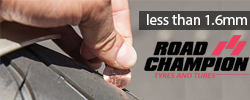
Your tread is less than 1.6mm:
Under European law, your treads must be at least 1.6mm deep around the tyre’s circumference. For winter tyres, Dunlop recommends a minimum tread depth of 4mm. Check them with a tread depth gauge (they aren’t expensive if you haven’t got one) and make sure you measure both the inside and outside of your treads.
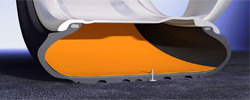
Something’s lodged in the tread:
Things get stuck in your tread all the time. Most of the time they’re easy to remove, but if you spot something that looks as if it’s gone through the rubber, like a nail, leave it in until you can get to a garage. Otherwise you’re likely to end up with a flat tyre.
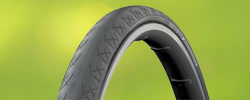
Tyres are worn on the outside:
If they’re worn on both of their edges, you might need to inflate them or check for leaks. Tyres lose air naturally, but driving on underinflated tyres uses more fuel and puts you at greater risk of accidents. If you notice that only the front tyres have worn edges, you might be taking corners too quickly. Make sure you regularly check your tyre pressure.

Tyres are worn in the centre:
If the centre of the tread is wearing more than the outer edges, you might have overinflated your tyres. This can increase the risk of a tyre blowout. Get a pressure gauge and then deflate to the recommended pressure level.
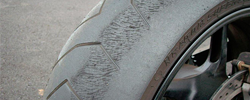
Uneven wear across a single tyre:
The wear patterns on your treads might indicate problems elsewhere. If you notice uneven patches of wear, or bald spots, you might need your wheels balanced or aligned. Sometimes bald spots indicate that your shocks are worn.
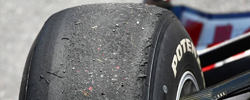
Uneven wear across all the tyres:
Your tyres won’t wear out at the same rate. The front of your vehicle carries the engine and does most of the steering work, so tyres on your front axle will wear out more quickly. If they seem to be wearing more than normal, you should have your suspension checked. If wear is greater on one side of the vehicle than the other, it might be time for an alignment.
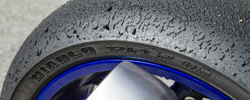
Sawtoothed pattern on tyre edges:
If you notice that your tyres have a sawtoothed or feathered appearance around the edges, the likely cause is erratic rubbing against the road. That’s a sign that you may need an alignment.


